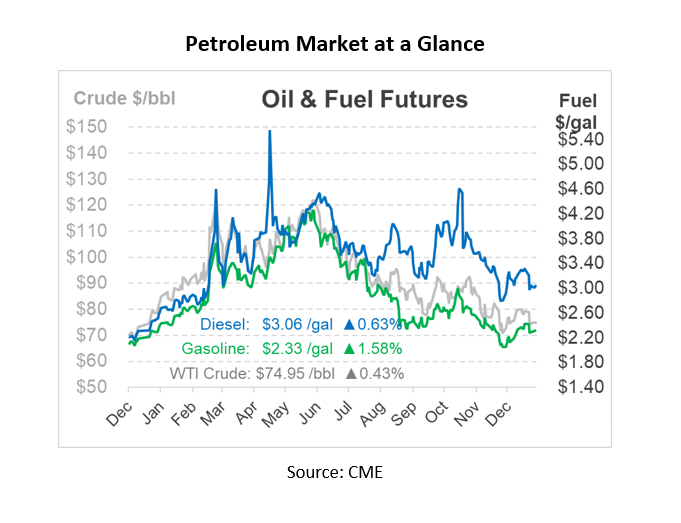
Seasonal Maintenance Schedule You MUST Follow – Keep Optimal Fuel Quality Year Round
Analysis by Sydney Casey
Whether you have a backyard storage tank or a fleet of engines, maintaining optimal fuel quality is essential. A lot can go wrong by not monitoring tanks or neglecting to follow a routine seasonal maintenance schedule. Depending on what region you live in, this schedule may fluctuate depending on other environmental characteristics. Before we dive into the timeline, let’s first understand why fuel tanks need frequent care.
Why do I need to clean my fuel tanks and systems?
Fuel tanks should be cleaned every one or two years whether the fuel is contaminated or not. It is a tremendous preventative measure to add to your maintenance schedule. Having your tanks cleaned on a consistent basis will ensure that a quality fuel product is being dispensed. By performing regular maintenance on your pump or equipment, you can avoid costly repairs and the inconvenience of frequent and expensive replacements.
Cleaning the tank regularly can also prevent the buildup of sludge. While the tank is being cleaned, any access point to the inside of the tank is inspected and cleaned. Any monitoring equipment will also be cleaned, and seals replaced. Tank caps, gaskets, hoses, nozzles, and wells are emptied in the process, along with the changing of filters.
Fuel tanks should also be treated with preventative diesel fuel biocides for microbial or bacterial growth. This will prevent the growth of unwanted or harmful organisms in your fuel. If microbes do become overgrown in the tank, it may be possible to clean or filter the fuel to prevent waste. If your tank or equipment is fueled with contaminated or substandard fuels, you risk equipment failure, lost efficiency, and worse – lost revenue.
Monthly Tank Maintenance
Monthly spill bucket inspections will ensure that there are no cracks or damages, facilitating a smooth delivery process that is secure and safe for both the driver and the customer. Checking for water, either using your ATG or by using water-finding paste when sticking the tank, should be another monthly task because water can be detrimental to the tank’s performance. You should also set time aside each month to look for wear and tear. If these types of issues are found during an inspection, take steps to repair the problems before they become unfixable.
Winter Tank Maintenance
If at no other time throughout the year, moving into the winter season, it is highly recommended to evaluate for water contamination. Water will freeze, which could result in major damage to the fuel tank or equipment. Have it removed immediately when and if water is detected at the bottom of your tank. You can also insulate the tank to stabilize temperatures and prevent the water or other elements from freezing. Water separation additives are another valuable tool in preventing damage to the tank and recycling the water for other uses.
How do water and bacteria get into tanks?
Fuel can become contaminated from leaky tank entrances, microorganisms, neglect of the tank, etc. The presence of even a tiny amount of water can allow for corrosion and potential equipment breakdown.
Now you can see why following a seasonal fuel tank maintenance schedule can save you a lot of time and money. Mistakes can be costly and leave you or your business with lost operational capacity. Mansfield offers a comprehensive fuel system assessment to provide recommendations on how to streamline operations, ultimately improving your bottom line through optimal site performance and preventing mistakes before they become a burden. Whether it’s troubleshooting, scheduling repairs, monitoring tank conditions, or testing fuel quality, you can count on Mansfield to keep your fueling systems clean, environmentally compliant, and in good working order.
This article is part of Daily Market News & Insights
Tagged:
MARKET CONDITION REPORT - DISCLAIMER
The information contained herein is derived from sources believed to be reliable; however, this information is not guaranteed as to its accuracy or completeness. Furthermore, no responsibility is assumed for use of this material and no express or implied warranties or guarantees are made. This material and any view or comment expressed herein are provided for informational purposes only and should not be construed in any way as an inducement or recommendation to buy or sell products, commodity futures or options contracts.






